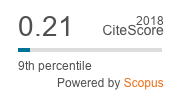O Conceito de Contingência Tríplice na Analise do Comportamento Humano
Résumé
RESUMO ”” Com exemplos encontrados na literatura especializada demonstra-se a utilidade do conceito de contingência tríplice como instrumento para a análise do comportamento humano. São discutidos tópicos como o controle da resposta pelo estímulo discriminativo, as diversas funções do estímulo antecedente, o controle da resposta por generalização de estímulos e alterações no controle exercido pelo estímulo discriminativo (mudanças na relação resposta-conseqüência, alterações em variáveis de contexto e variações no nível motivacional).
Téléchargements
Références
Experimental Analysis of Behavior, 1,183-200.
BAHRICK. H.P., FITTS, P.M., & RANKIN, R.E. (1952) Effects of incentives upon
reactions to peripheral stimuli. Journal of Experimental Psychology,
38, 643-658.
BARTLEY, S.H. (1969) Principles of perception. New York: Harper & Row.
ВОЕ, R. & WINOKUR, S. (1978) A procedure for studying echoic control in
verbal behavior. Journal of the Experimental Analysis of Behavior, 30,
213-217.
DE VILLIERS, P. (1977) Choice in concurrent schedules and a quantitative formulation
of the law of effect. In W.K. Honig & J.E.R. Staddon (Orgs.), Handbook
of operant behavior. Englewood Cliffs, N.J.: Prentice-Hall, 1977. (1970)
DE VILLIERS, P. & HERRNSTEIN, R.J. (1976) Toward a law of response strength.
Psychological Bulletin, 83, 1131-1153.
EISENBERGER, R. (1970) Is there a deprivation-satiation function for social
approval? Psychologial Bulletin, 74,255-275.
ERICKSEN, C.W. & BROWNE, T. (1956) An experimental and theoretical analysis
of perceptual defense. Journal of Abnormal and Social Psychology, 52,
224-230.
FERRARA, M.L.D. (1981) Algumas considerações acerca da distinção operanterespondente.
Cadernos de Análise do Comportamento, 1, 5-12.
FERSTER, С.В. & SKINNER, B.F. (1957) Schedules of reinforcement. New York:
Appleton-Century-Crofts.
GILCHRIST, J.C. & NESBERG, L.S. (1952) Need and perceptual change in needrelated
objects. Journal of Experimental Psychology, 44, 369-376.
GOLDIAMOND, I. (1962) Perception. In A.J. Bachrach (Org.), Experimental foundations
of clinical psychology. New York: Basic Books, pp. 280-340.
GUTTMAN, N. & KALISH, H.I. (1956) Discriminability and stimulus generalization.
Journal of Experimental Psychology, 51, 79-88.
HARZEM, P. & MILES, T.R. (1978) Conceptual issues in operant psychology.
New York: Wiley.
HENTON, W.M. (1978) Review of classical-operant conditionning, parameter by
parameter. In W.M. Henton e I.H. Iversen (Orgs.), Classical conditionning and
operant conditionning. New York: Springer-Verlag. pp. 19-96
HERRNSTEIN, R.J. (1970) On the law of effect. Journal of the Experimental
Analysis of Behavior, 13, 243-266.
HICKS, R.G. (1970) Experimenter effects on the physiological experiment. Psychophysiology,
7, 10-17.
HONIG, W.K. (1966) Operant behavior: Areas of research and application. New
York: Appleton-Century-Crofts.
HONIG. W.K. & STADDON, J.E.R. (1977) Handbook of operant behavior. Englewood
Cliffs, N.J.: Prentice-Hall.
HONIG, W.K. & URCUIOLI, P.J. (1981) The legacy of Guttman and Kalish
(1956): 25 years of research on stimulus generalization. Journal of the Experimental
Analysis of Behavior, 36, 405-445.
KELLER, F.S. & SCHOENFELD, W.N. (1950) Principles of psychology. New
York: Appleton-Century-Crofts.
KELLEHER, R.T. (1966) Chaining and conditioned reinforcement. In W.K. Honig
(Org.) Operant behavior: Areas of research and application. New York. Appleton-
Century-Crofts.
MAHER, B.A. (1966) Principles of psychopathology. New York: McGraw-Hill.
MATOS, M.A. (1981) O controle de estímulos sobre o comportamento. Psicologia,
7, 1-15.
MILLENSON, J.R. (1975) Princípios de análise do comportamento. Brasília: Coordenada.
SALZINGER, K. (1969) The place of operant conditioning of verbal behavior in
psychotherapy. In C.M. Franks (Org.), Behavior therapy: Appaisal and status.
New York: McGraw-Hill, pp. 375-395.
SALZINGER, K. & SALZINGER, S. (1973) The reinforcement contingency: A
critical behavior theory concept to understanding abnormal behavior. In M.
Hammer, K. Salzinger e S. Sutton (Orgs.), Psychopathology: Contributions
from the social, behavioral, and biological sciences. New York: Wiley, pp.
111-125.
SKINNER, B.F. (1953) Science and human behavior. New York: McMillan.
SKINNER, B.F. (1969) Contingencies of reinforcement: A theoretical analysis.
New York: Appleton-Century-Crofts.
TODOROV, J.C. (1974) Medidas relativas de la ejecución mantenida por programas
de refuerzo. In R. Ardila (Org.), El Análisis experimental del comportamiento:
la contribución latinoamericana. México: Trillas. pp. 66-97.
TODOROV, J.C. (1982) Behaviorismo e análise experimental do comportamento.
Cadernos de Análise do Comportamento, 3,10-23.
TODOROV, J.C., CAVALCANTE DE SOUZA, E.C., TORREZAN, E.A., & GOMIDE
Jr., S. (1979). Controle discriminativo do comportamento verbal. Trabalho
apresentado na IX Reunião Anual de Psicologia, Sociedade de Psicologia de
Ribeirão Preto, outubro.
ULLMANN, L. P. & KRASNER, L. (1969) A psychological approach to abnormal
behavior. Englewood Cliffs, N.J.: Prentice-Hall.
WOLPE, J. (1958) Psychotherapy by reciprocal inhibition. Stanford: Stanford University
Press.
ZARLOCK, S.P. (1966) Social expectations, language, and schizophrenia. Journal of
Humanistic Psychology, 6, 68-74.
Téléchargements
Publié-e
Comment citer
Numéro
Rubrique
Licence
(c) Tous droits réservés João Cláudio Todorov 2012

Cette œuvre est sous licence Creative Commons Attribution 4.0 International.



